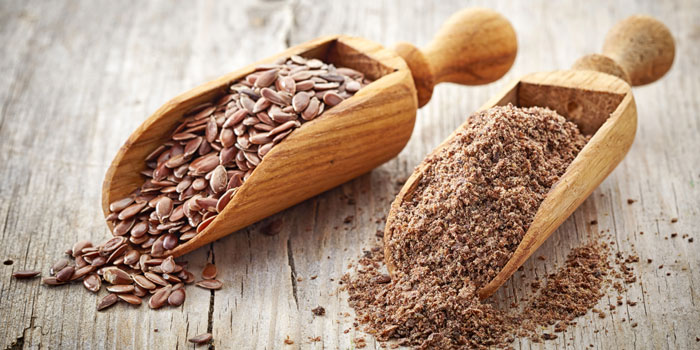
Pronounce it: lin-seed
Linseed is the small, reddish-brown or golden-yellow seed of the common flax plant, linum usitatissimum, exactly the same plant as is used to grow the fibre from which true linen has been made for thousands of years. Some flax plants – not a different variety – produce more seeds than others and these have carefully been chosen as a crop plant. It’s equally correct to call the same small seeds linseed or flaxseed.
More traditionally pressed to make linseed oil, without which heritage paints and cricket bats would not be the same, the seeds have long been used medicinally to help with constipation but also come packed with many components that have health benefits. They are more likely to be recommended as a vegetarian source of an important single Omega-3 fatty acid, usually found in fish oils, but the accessibility of this ingredient can be affected by association with other constituents and it’s best to take specialist dietary advice if this is important.
Linseeds will always add marked dietary fibre and thus should first be added to any diet in modest amounts and always with increased liquid intake.
Culinary grade linseed or flaxseed oil has a rich, buttery taste and is useful to add richness to bland dishes; it can be used as a milder laxative than the seeds.
Availability
As whole seeds or in crushed form, the seeds are widely available in speciality stores and online. The oils are less common but can be found online.
Choose the best
Avoid dull colour or dustiness; really old linseeds will smell slightly off if their oils have oxidised. The ground or crushed seeds will deteriorate much faster than whole ones.
Culinary grade linseed or flaxseed oil should come in small containers that exclude the light; coloured glass or metal are suitable.
Store it
Buy and keep small amounts of the seeds and keep in a cool, dark place. Linseed and flax oil are very prone to rancidity and must be bought only in small amounts, again being kept cool and away from sunlight. A bitter after taste is a sure sign that the oil is past its best.
Cook it
Linseeds, whole or ground, do not need to be cooked and can be added to almost any dish, including breads, biscuits and cakes, to cooked or uncooked snack bars, to muesli mixes and porridges – even to curries and vegetable stews. But beware of their high-fibre content and use sparingly, perhaps only as a light scattering until you know how your body reacts to them.
Linseed and flaxseed oils should never be used for cooking as they have a very low flash point and thus can easily burst into flame; best used as a nutty condiment, especially on starchy foods or bland dairy products. Otherwise, mix with other oils in dressings for salads and vegetables.
Be the first to comment on "Linseed (also flaxseed)"